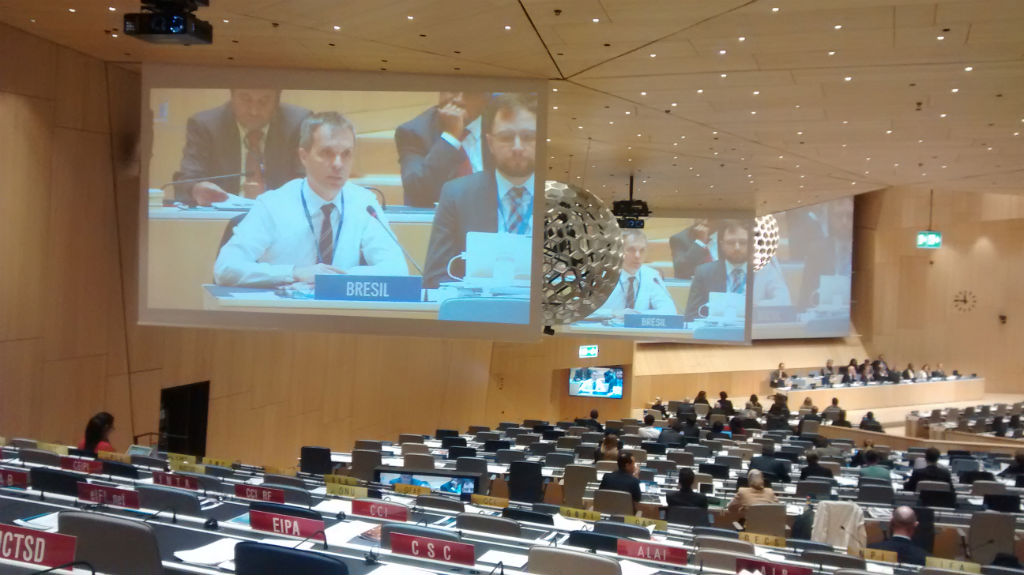
|
| Brazil asks delegates to embrace work on copyright exceptions |
The 46th WIPO General Assembly is coming to a close, and it may be the worst ever, for the annual meetings held in September. There are deadlocks on a half dozen significant issues, and an ugly North South divide. Among the issues that will not have any significant conclusions are those relating to progress on a treaty for the protection of designs, a treaty for the protection of broadcasting organizations, work on norm setting for copyright exceptions, the IGC basket of issues including a possible agreement on disclosure of genetic resources, and protection of traditional knowledge or traditional cultural expressions. The European Union (EU) and the Central European and Baltic States (CEBS) group were particularly aggressive in blocking work on copyright exceptions. The fact that the EU was willing to see no progress on the designs or broadcasting treaties, in order to block any agreement on language supporting text based work on copyright exceptions illustrates how much the EU is in the pocket of publishers.
The United States has said almost nothing this evening, leaving it to the European Union, the CEBS group and Japan, representing Group B, to try to kill work on copyright exceptions. Hopes that Michelle Lee at the USPTO would bring some moderation and balance to the US government position at WIPO have not borne fruit at this meeting.
The Africa Group and Brazil both pushed WIPO members to adopt a balanced agenda on copyright, Brazil proposing at one point [/node/2102] that the delegates simply endorse language agreed upon 12 months ago. But the new aggressive posture of the EU, supported quietly by USPTO, blocked even that.
One positive development was a closer cooperation among developing countries, often reacting to the increasingly strident positions of Group B countries. Going forward, delegates will have to assess how to get work done in a multilateral forum, at a time when corporate lobbyists for publishers, drug companies and other patent holders want to shift norm setting to secret bilateral and regional trade agreements, dominated by the US or the EU.